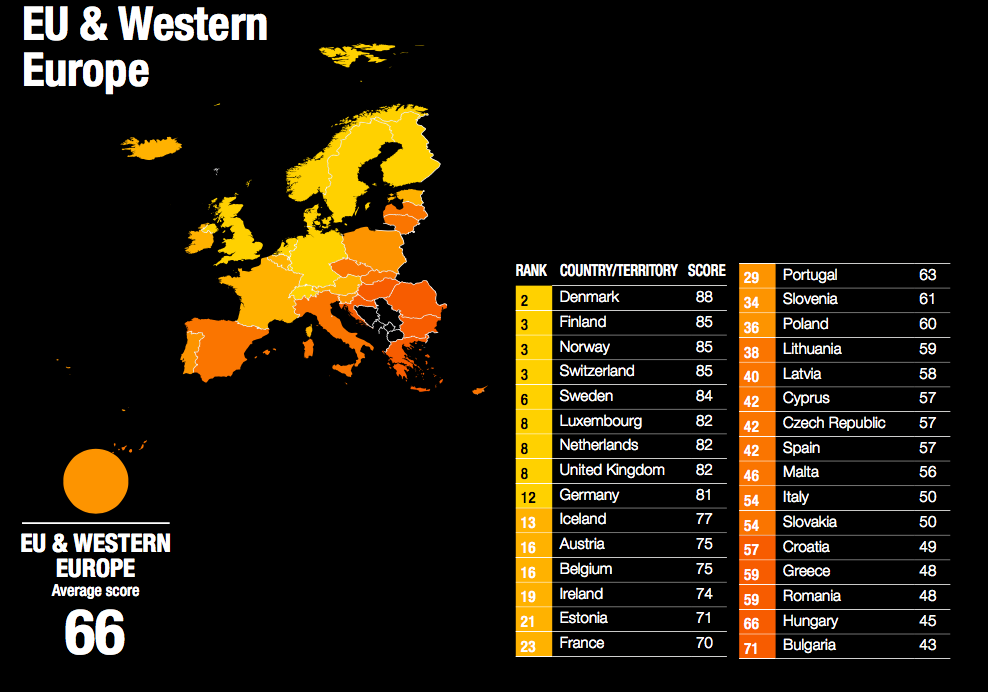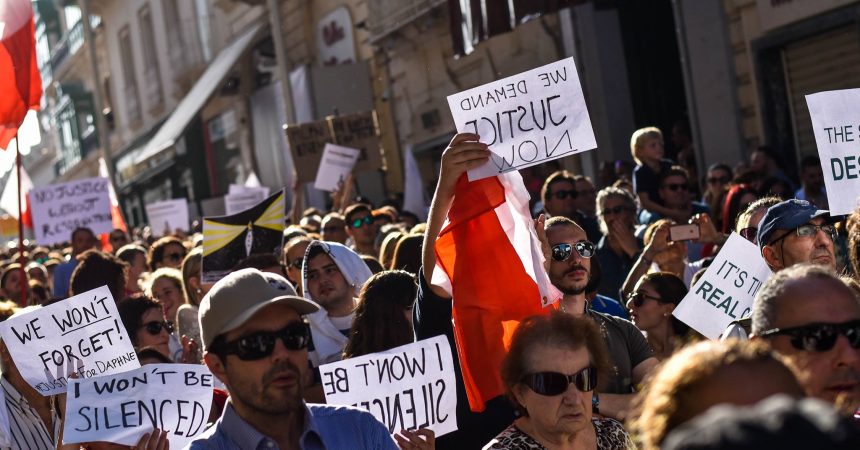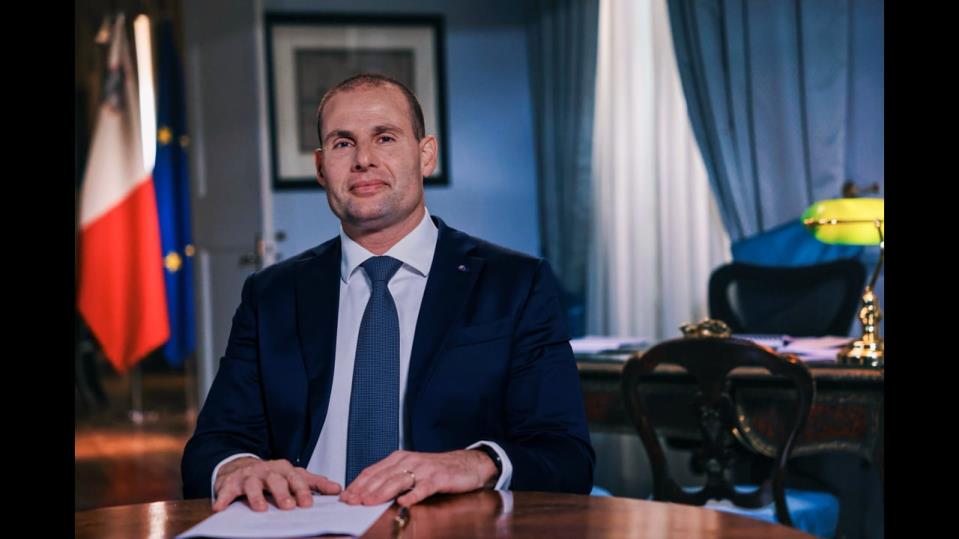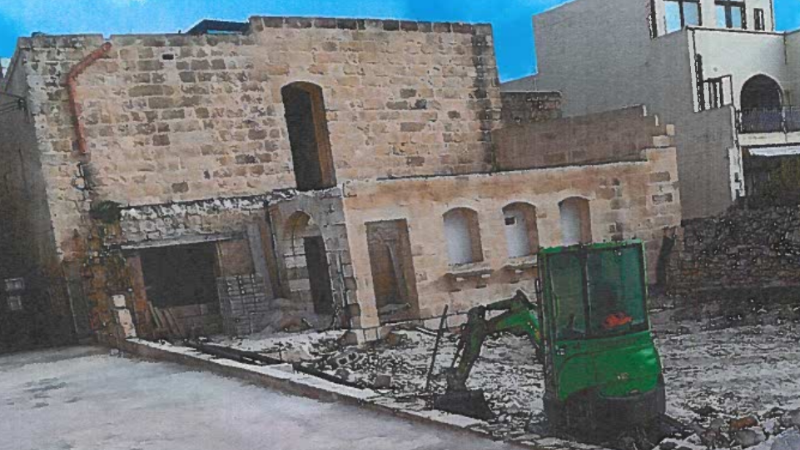Malta gained one place in Transparency International’s global ranking of public sector corruption as the report showed that despite attempts to combat corruption around the world, the majority of countries are moving too slowly in their efforts to combat corruption.
Compared to 2016, Malta gained one point in the index which ranks 180 countries and territories by their perceived levels of public sector corruption according to experts and businesspeople. The report uses a scale of 0 to 100, where 0 is highly corrupt and 100 is very clean.

The Corruption Perceptions Index aggregates data from a number of different sources that provide perceptions by business people and country experts of the level of corruption in the public sector.
In 2017, Malta scored 56, one point up from the previous year and came in at 46th place. Malta’s score is 10 points less than the EU and Western Europe’s average of 66.
Since 2012, Malta never scored higher than 60 points (2015) and its lowest score was registered in 2016 and 2015 (55 points).
The key finding in the 2017 Corruption Perceptions Index is that the majority of countries are making little or no progress in fighting corruption, while further analysis shows journalists and activists in corrupt countries risking their lives every day in an effort to speak out.
“Our first-hand experience working in more than 100 countries around the world shows that activists and media are vital to combatting corruption,” the report said.
Among its recommendations, Transparency International called on governments and businesses to do more to encourage free speech, independent media, political dissent and an open and engaged civil society.
The report, which incorporates data from the Committee to Protect Journalists, shows that in the last six years, more than 9 out of 10 journalists were killed in countries that score 45 or less on the index. At least one journalist is killed every week in a country that is highly corrupt.
The murder of Maltese journalist Daphne Caruana Galizia in October 2017 was one of the few cases in countries with a score of over 45.
“Governments should minimise regulations on media, including traditional and new media, and ensure that journalists can work without fear of repression or violence,” Transparency International said.
In addition, the report concluded that international donors should consider press freedom relevant to development aid or access to international organisations.
The report also called on governments to ensure access to information and the protection of fundamental freedoms and align these to international agreements and best practices.
“Governments and businesses should proactively disclose relevant public interest information in open data formats. Proactive disclosure of relevant data, including government budgets, company ownership, public procurement and political party finances allows journalists, civil society and affected communities to identify patterns of corrupt conduct more efficiently.”
Transparency International also looked at the relationship between corruption levels and the freedom with which civic organisations are able to operate and influence public policy. The analysis, which incorporates data from the World Justice Project, shows that most countries that score low for civil liberties also tend to score high for corruption.
According to the 2017 index, New Zealand, Denmark and Finland are the safest countries, scoring the highest with 90. While no country scores 100, meaning that they are completely clean from corruption, more than two thirds of countries scored below 50 on the index, with an average score of 43.
Since its inception in 1995, the Corruption Perceptions Index, Transparency International’s flagship publication, is the leading global indicator of public sector corruption. The index offers an annual snapshot of the relative degree of corruption by ranking countries from all over the globe.












